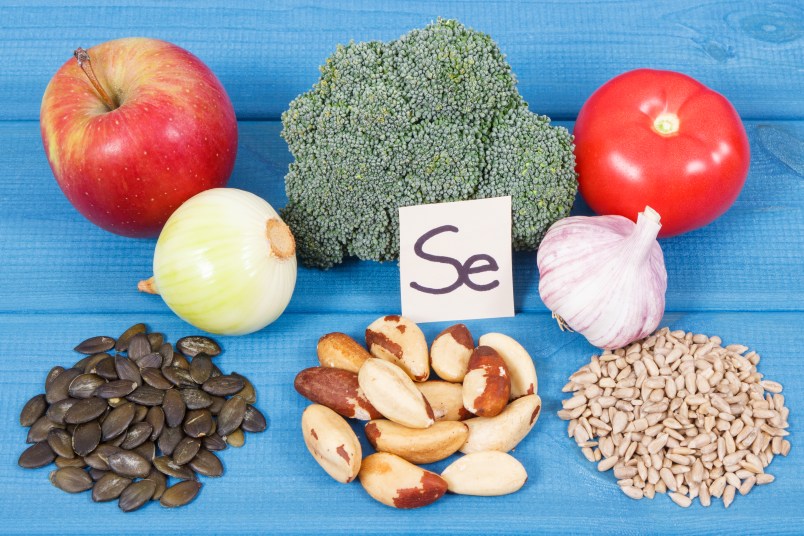Sluggish Thyroid? Eat These Foods to Minimize Your Symptoms
Nix weight gain and fatigue.

The thyroid is a small, butterfly-shaped gland in the neck that releases several hormones that play significant roles in our bodily functions. Specifically, thyroid hormones affect the body’s metabolism, growth, cell repair, and temperature regulation.
When the body can’t make enough thyroid hormones, this is called hypothyroidism — a condition that can cause nagging symptoms like chronic fatigue, weight gain, cold hands and feet, skin issues, depression, hair loss, and more. This condition is ten times more likely to develop in women than men. Luckily, however, eating the right foods can help you manage it.
What is hypothyroidism?
In a healthy individual, the pituitary gland in the brain releases a hormone called TSH, which then causes the thyroid to make two hormones: triiodothyronine (T3) and thyroxine (T4). T3 and T4 help control our metabolism and several other bodily functions. In a person with hypothyroidism, the thyroid doesn’t release these hormones, leading to the symptoms mentioned above.
Most cases of hypothyroidism are caused by a disease called Hashimoto’s thyroiditis, a condition where one’s immune system mistakenly attacks their own thyroid gland. Other causes include iodine deficiency, certain medications, radiation therapy, pregnancy, and thyroid surgery.
Foods for Hypothyroidism
Foods alone aren’t a cure for hypothyroidism. However, getting the right nutrients in your diet is important and can help to restore thyroid function — and even minimize your symptoms. Check them out below.
Foods Rich in Selenium
Selenium is an essential trace mineral that is important for many bodily processes, including immune function, cognitive function, and you guessed it — thyroid function. Research shows that selenium may “activate” thyroid hormones so they can be used by the body. It also has antioxidant properties, which means it could help protect the thyroid gland from free-radical damage. Boost your levels by eating foods rich in selenium like Brazil nuts, eggs, sardines, legumes, and tuna.
Foods Rich in Zinc
Zinc is another essential trace mineral that, much like selenium, helps the body to activate thyroid hormones so they can be used by the body. Some research even shows that zinc may help the body regulate TSH, which again, triggers the release of T3 and T4. To get more zinc in your diet, favor lean beef, chicken, and turkey, oysters, legumes like lentils and chickpeas, pine nuts and cashews, hemp seeds, pumpkin seeds, and sunflower seeds.
Foods Rich in Iodine
Iodine deficiency may cause hypothyroidism, so adding more iodine to your diet could help manage symptoms. Iodine deficiencies aren’t common in developed countries like the US, since we consume many iodine-enriched foods, such as iodized salt. However, if you don’t consume iodine-enriched foods and/or your doctor has said you are deficient in iodine, try eating more seaweed, dairy, eggs, and fish to boost your levels.
Lean Proteins
If you suffer from symptoms like weight gain and fatigue, adding more lean proteins to your diet could help relieve them. While there isn’t a ton of research on the direct affect of lean proteins on your thyroid, they have been shown to increase metabolism and help with weight management. Make room on your plate for more foods like eggs, lean meats like lamb, chicken, turkey, beef, salmon and tuna, and dairy products like yogurt and cheese.
Making smart food choices is one of the many ways you can start to manage your hypothyroidism and relieve frustrating symptoms in a natural and healthful way. Here’s to more energy, a faster metabolism, and improved well-being!













